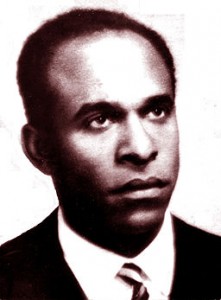
In this module we’ll think about radio and listening. Some of our guiding questions are as follows: How does a sonic medium work? What are the circumstances required for creating listening publics? What are the different kinds of things sound can convey?
Let’s begin by thinking about some general questions. Jot down some notes for class discussion tomorrow:
1. What distinguishes radio as a medium from the other media we have studied until now?
2. When and where do you listen to the radio? What is your relationship to it?
We’ll read two texts for this module: one essay written in 1959
either a recent essay by eminent radio historian Michele Hilmes that thinks about the relationship between nation, imagination, and media in the context of US radio:
OR
An essay by historian Jon Cowans that traces the debates over national radio in post-war France:
Cowans Political Culture and Cultural Politics
You may choose one of the above two; the one by Hilmes is slightly shorter and a bit more theoretical; the one by Cowans is a little longer and more specifically about France.
Both texts address questions of community and identity within a national framework. What happens when we look beyond national boundaries to colonial contexts?
These questions were taken up by Frantz Fanon in the following essay:
This is Chapter 2 of his book, A Dying Colonialism (1959). If you’ve never heard of Frantz Fanon, or want to refresh your memory, please visit his page on the Internet Encyclopedia of Philosophy.
The book is about the Algerian anticolonial struggles against the French, and this particular chapter is about, you guessed it, the role of radio in those struggles. It will be helpful to make a timeline of the process of mobilization that he describes: are there turning points and important moments?
I’ve noted some of the lines that are most memorable to me:
“only way to still feel like a civilized man”
“as a French presence, it is characterized by an extremely important negative valence”
“a new form of struggle had come into being”
“the radio receiver guaranteed this true lie”
For your response; either write about one or two of those lines, or find some that resonate with you and talk about them. You’ll want to think about how the two texts (whichever ones you read) relate to one another.
In class, we’ll listen to some broadcasts and talk about radio as a medium of politics and its relationship to community.


16 responses to “#5 Radio and the Aural Imagination”